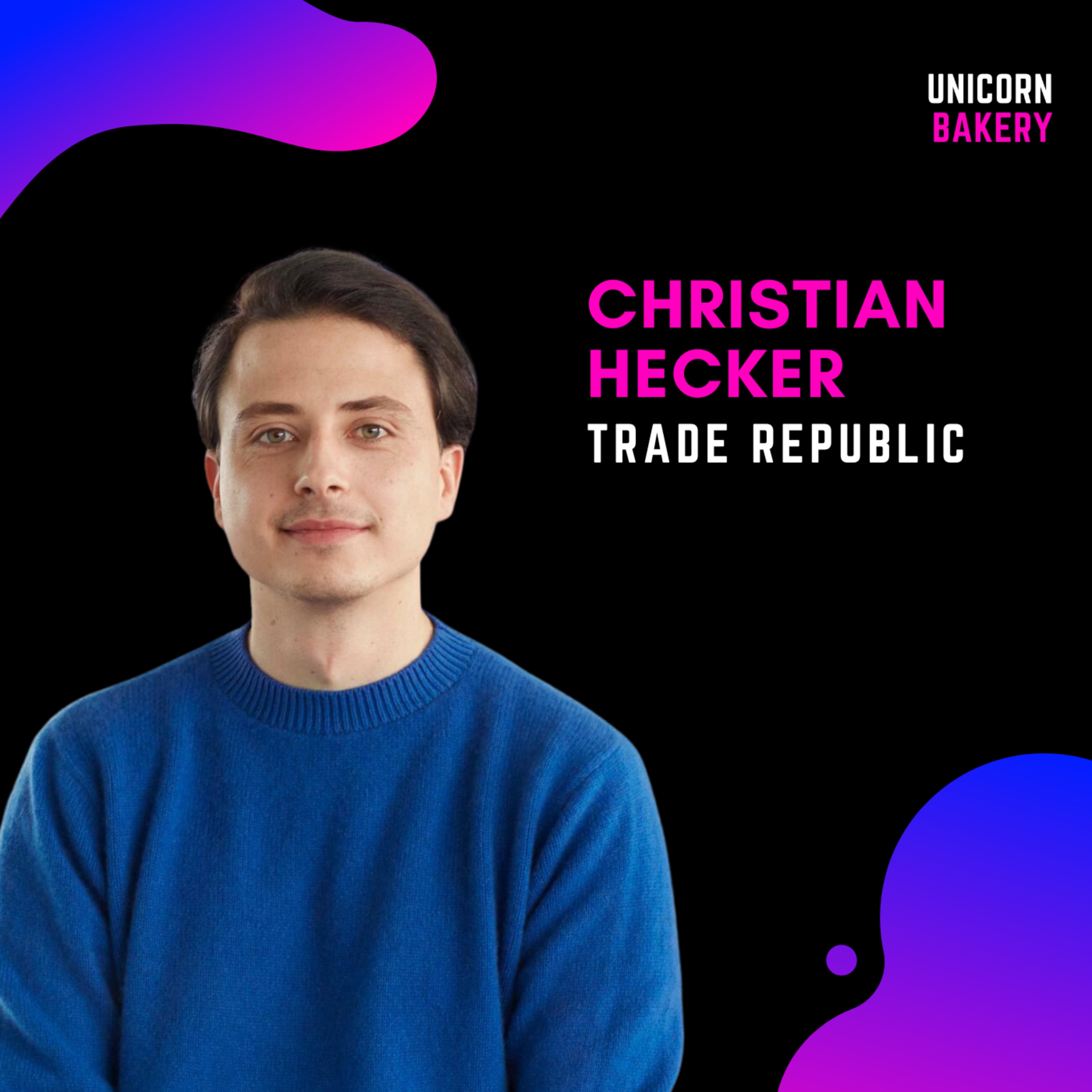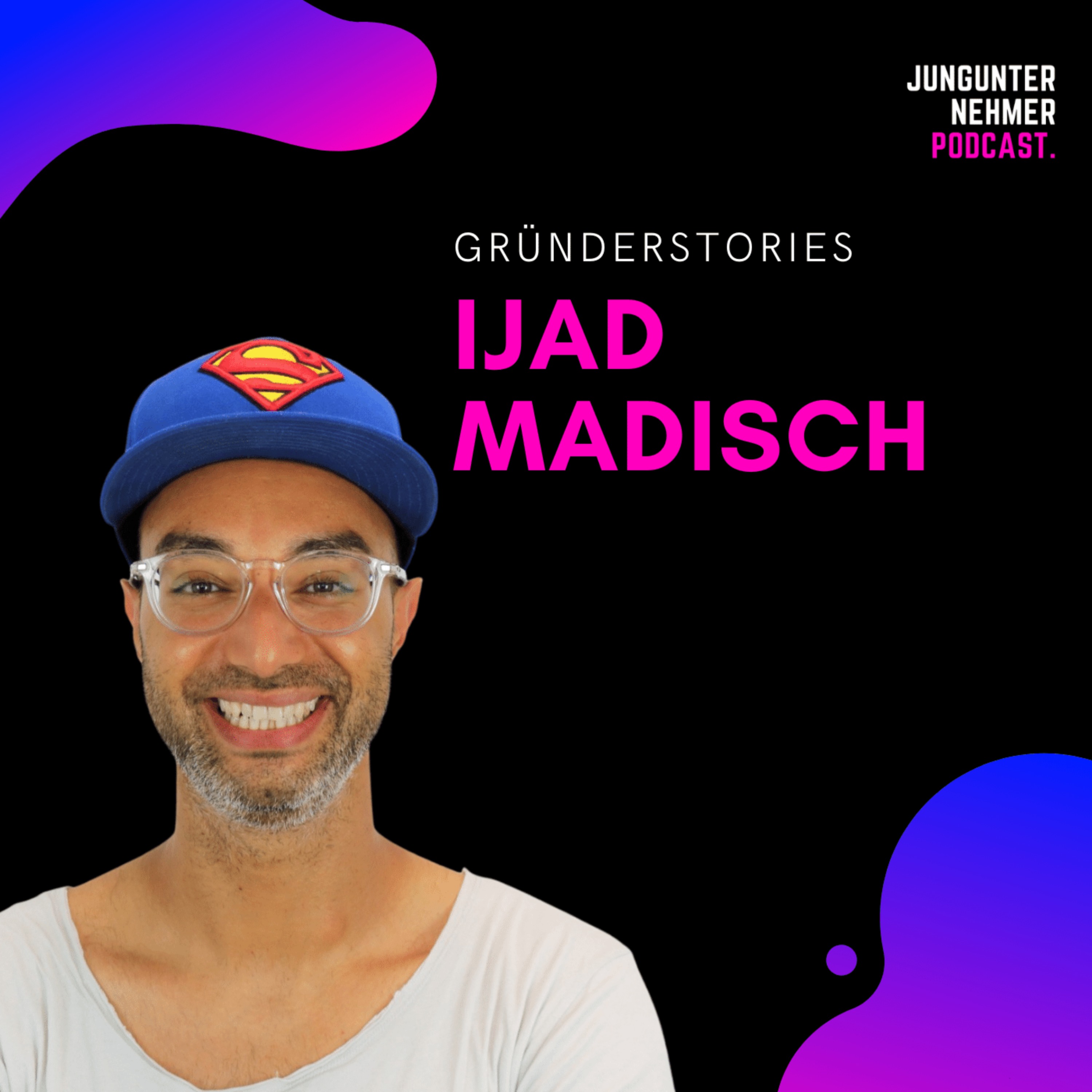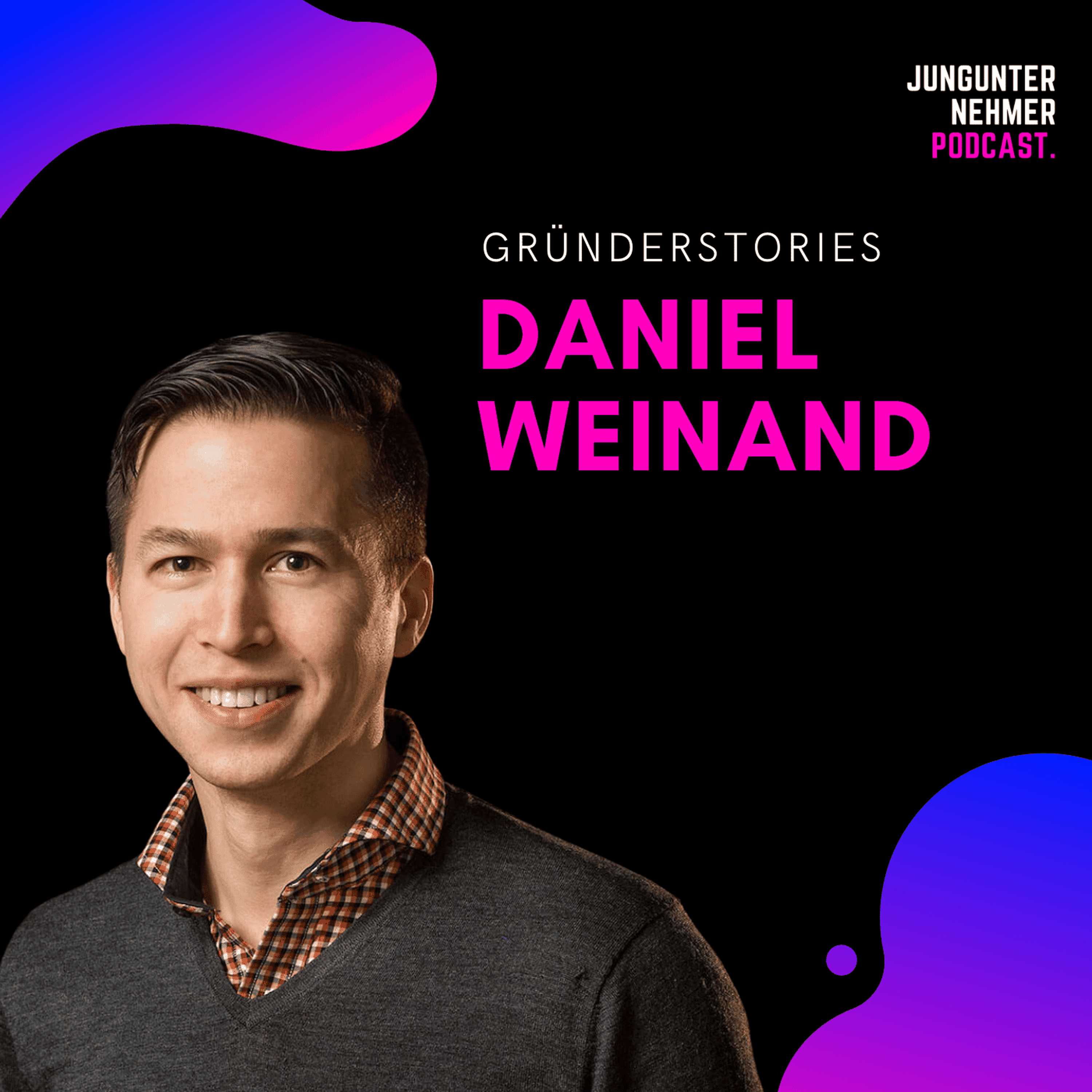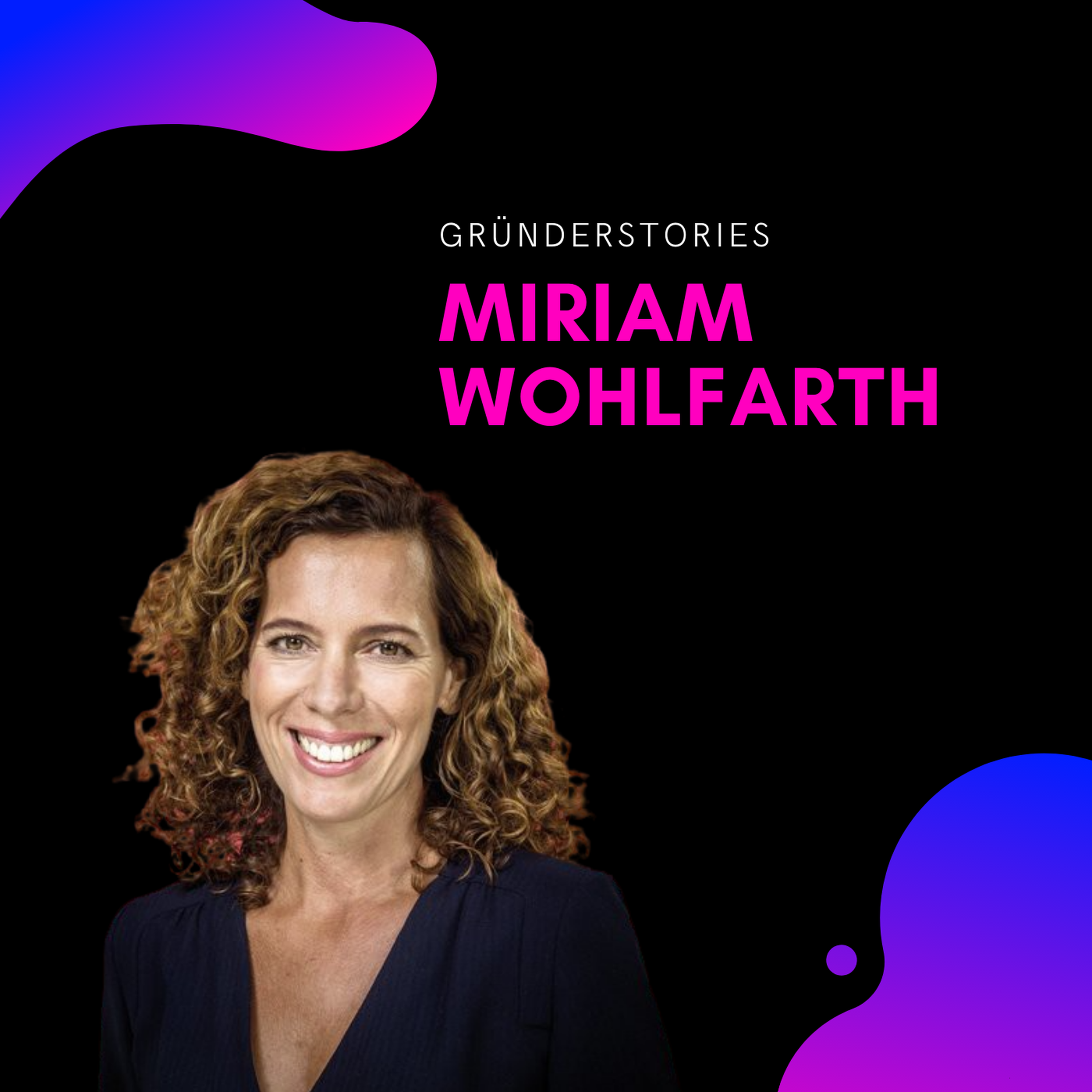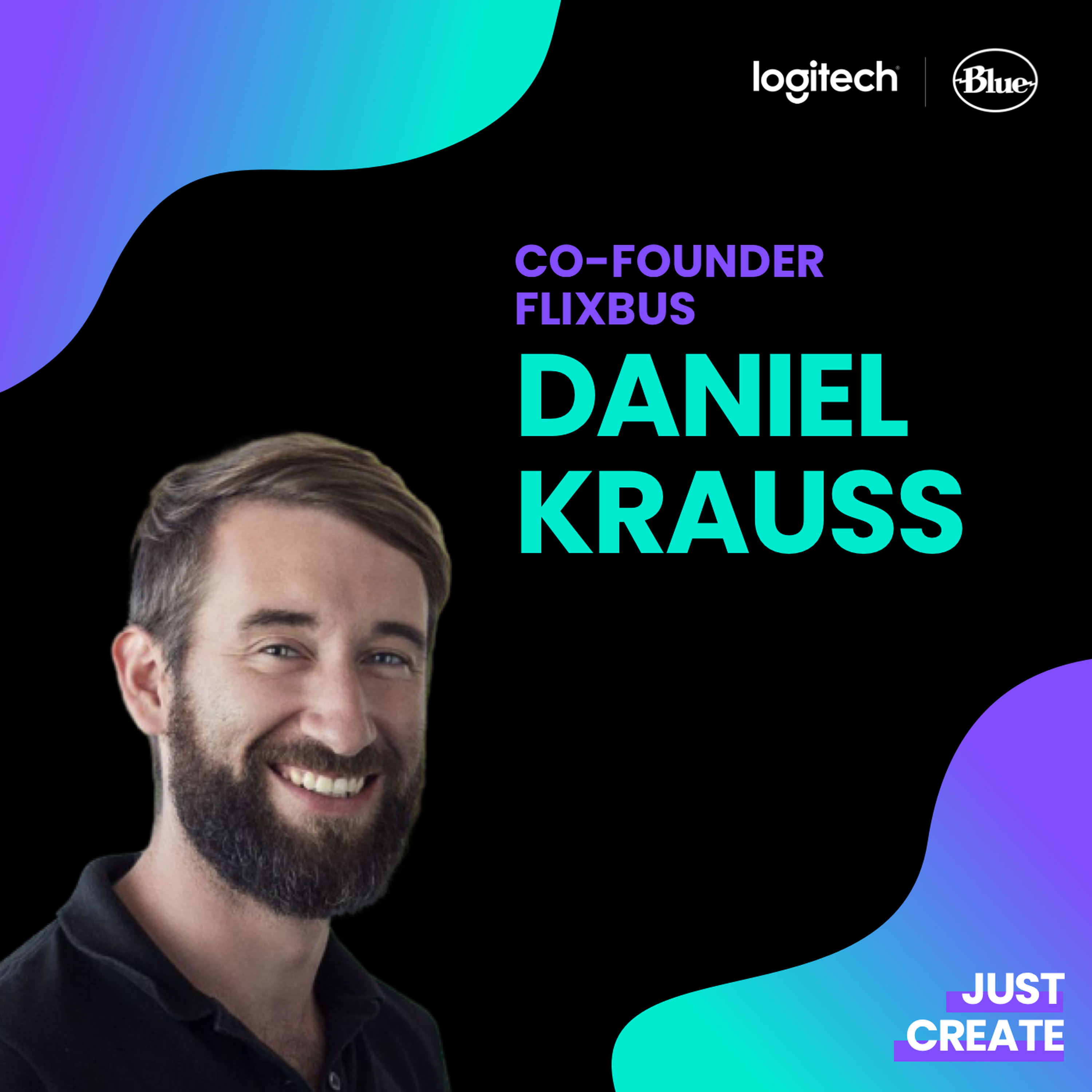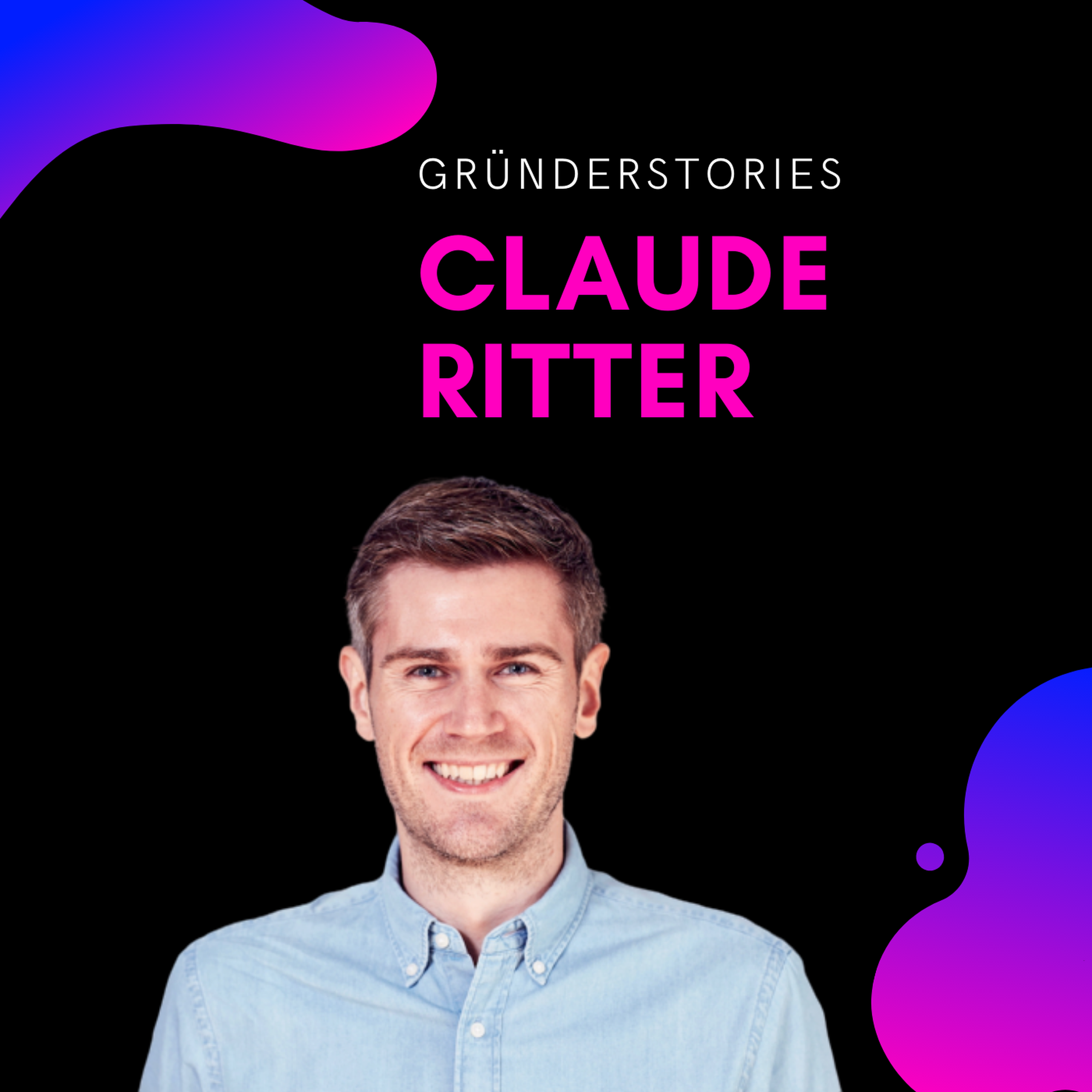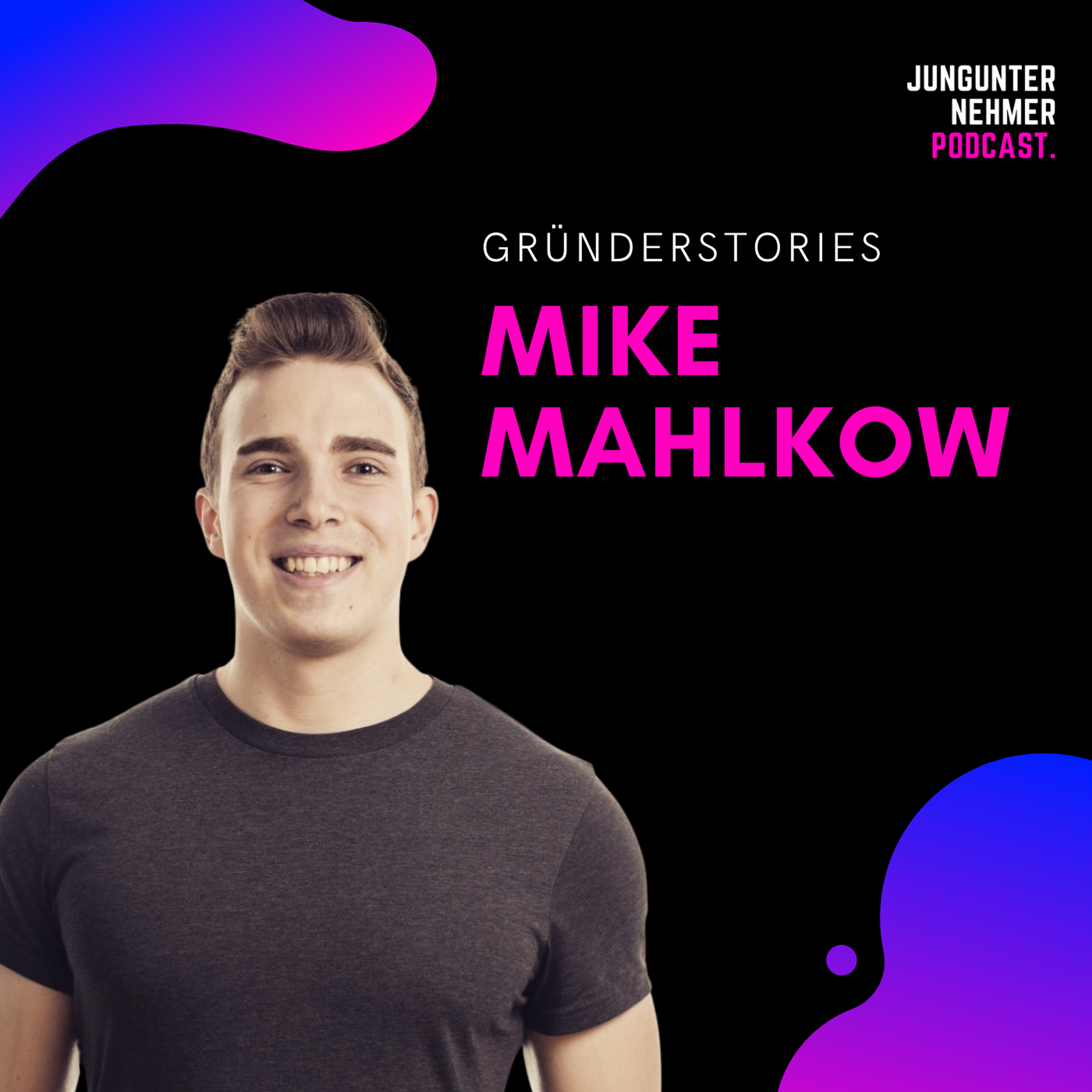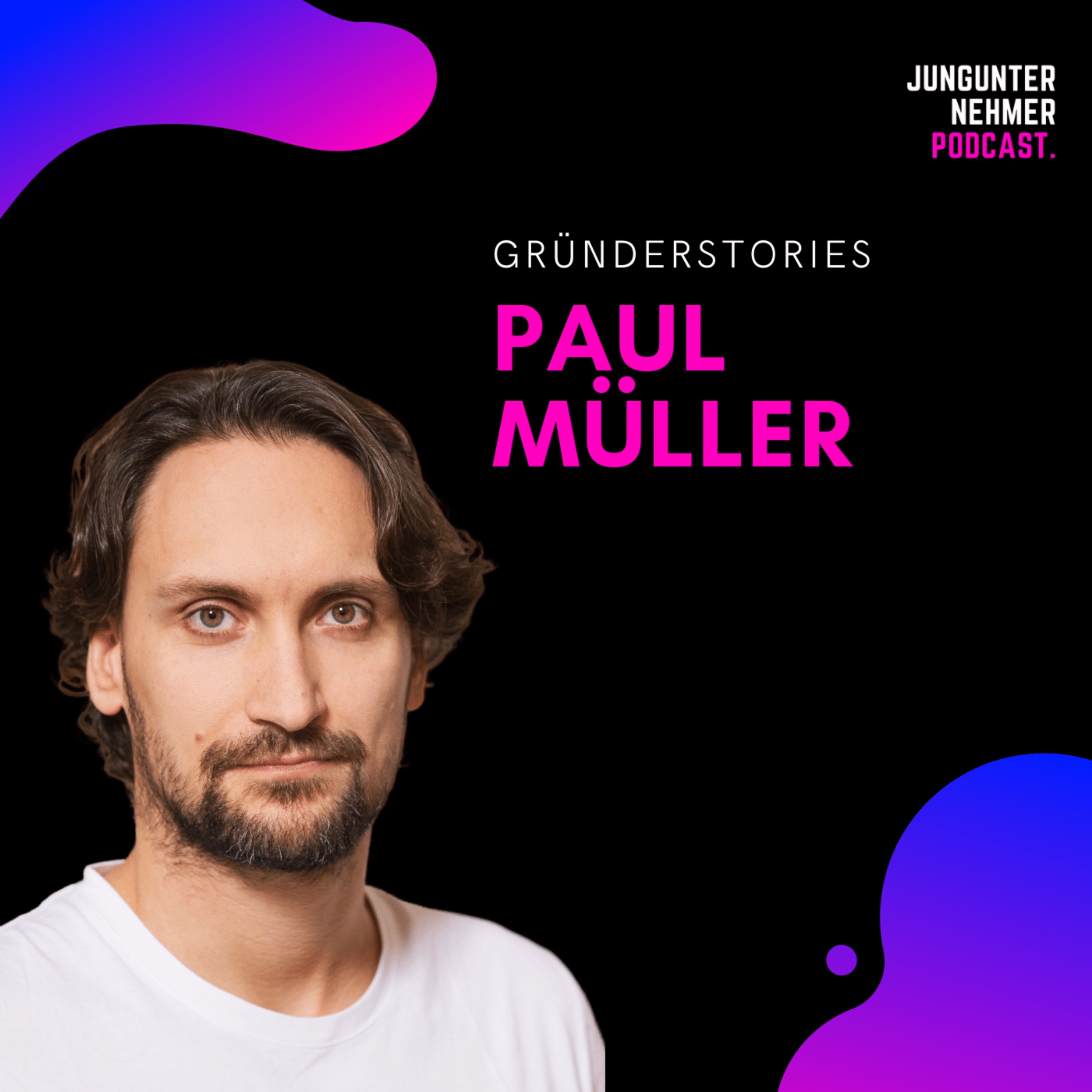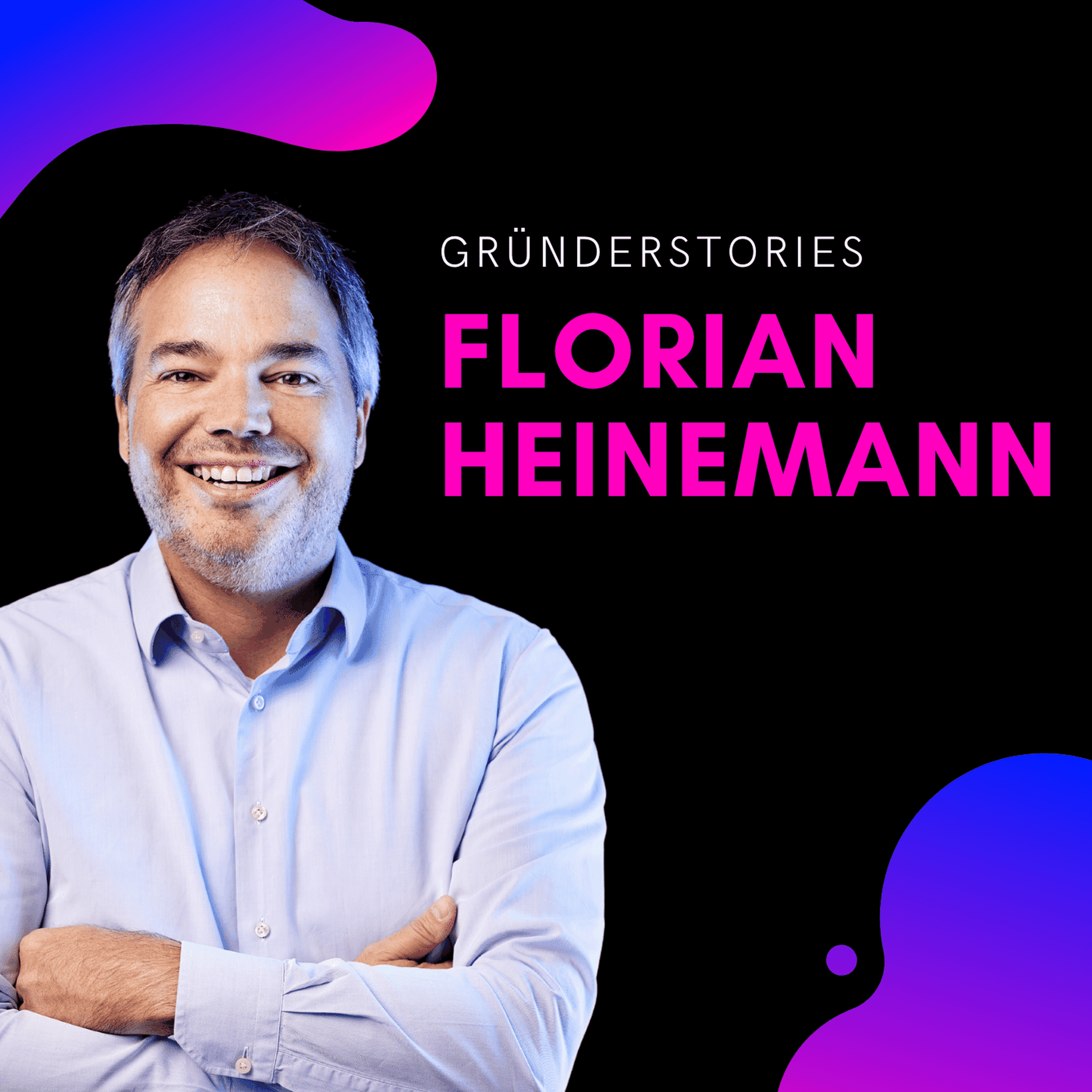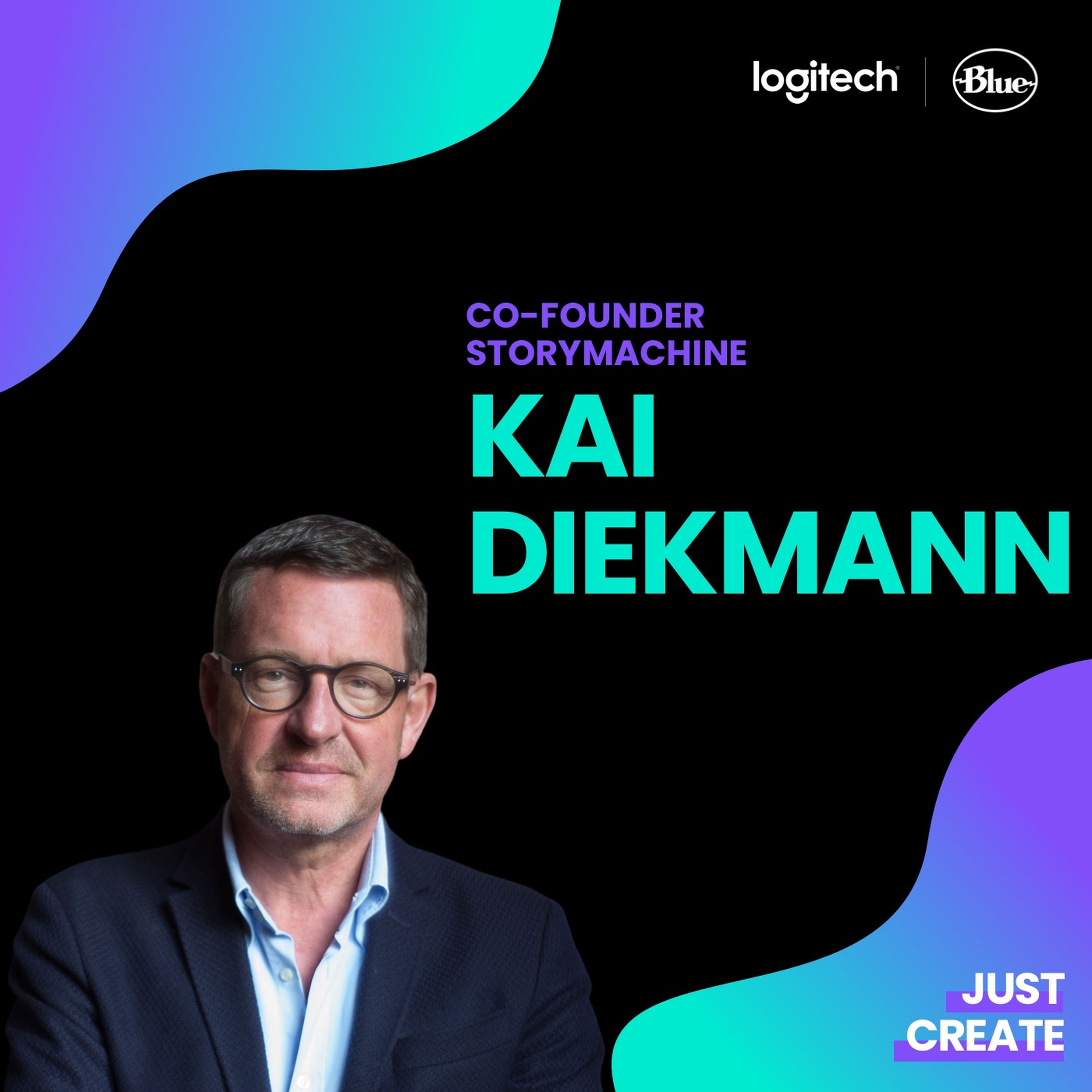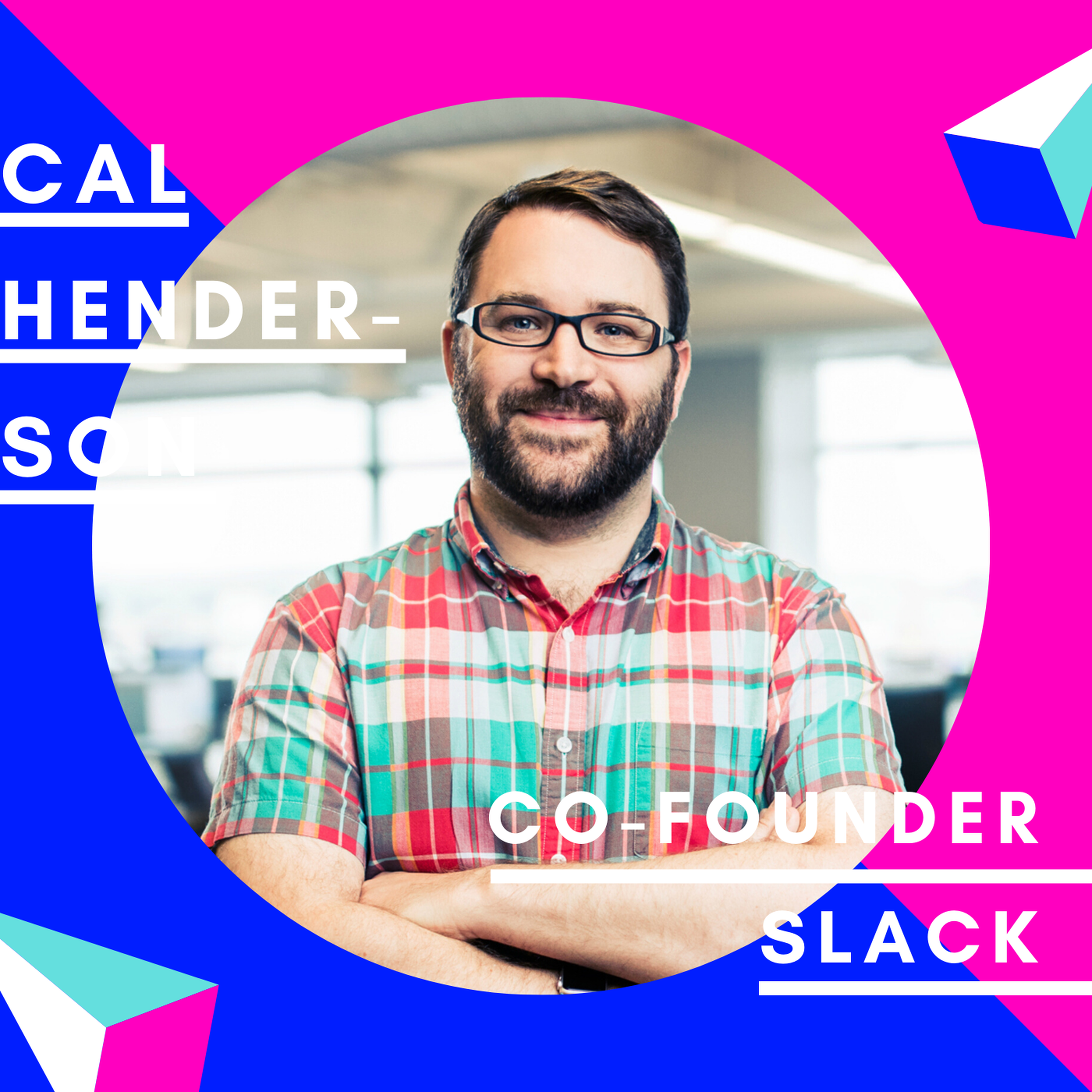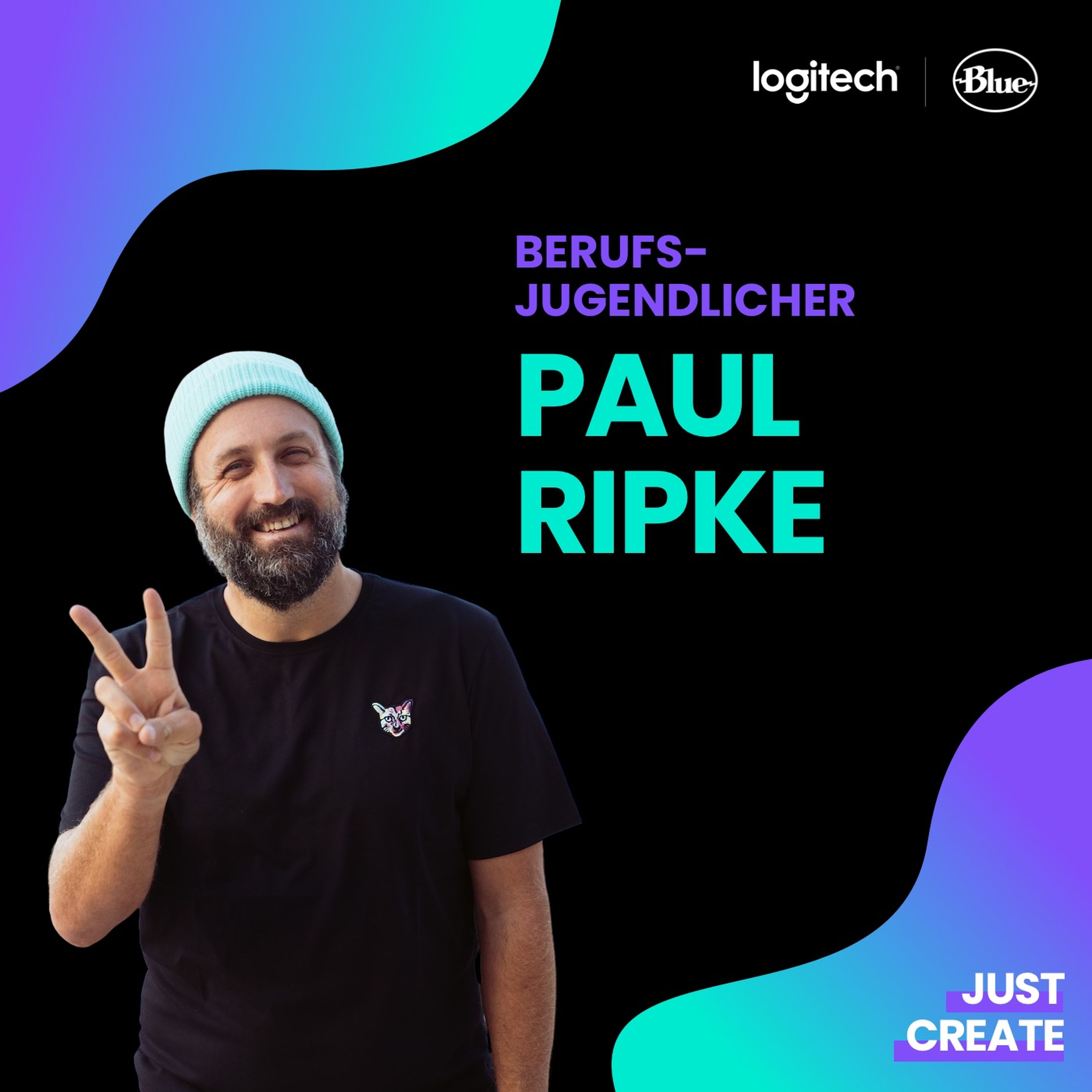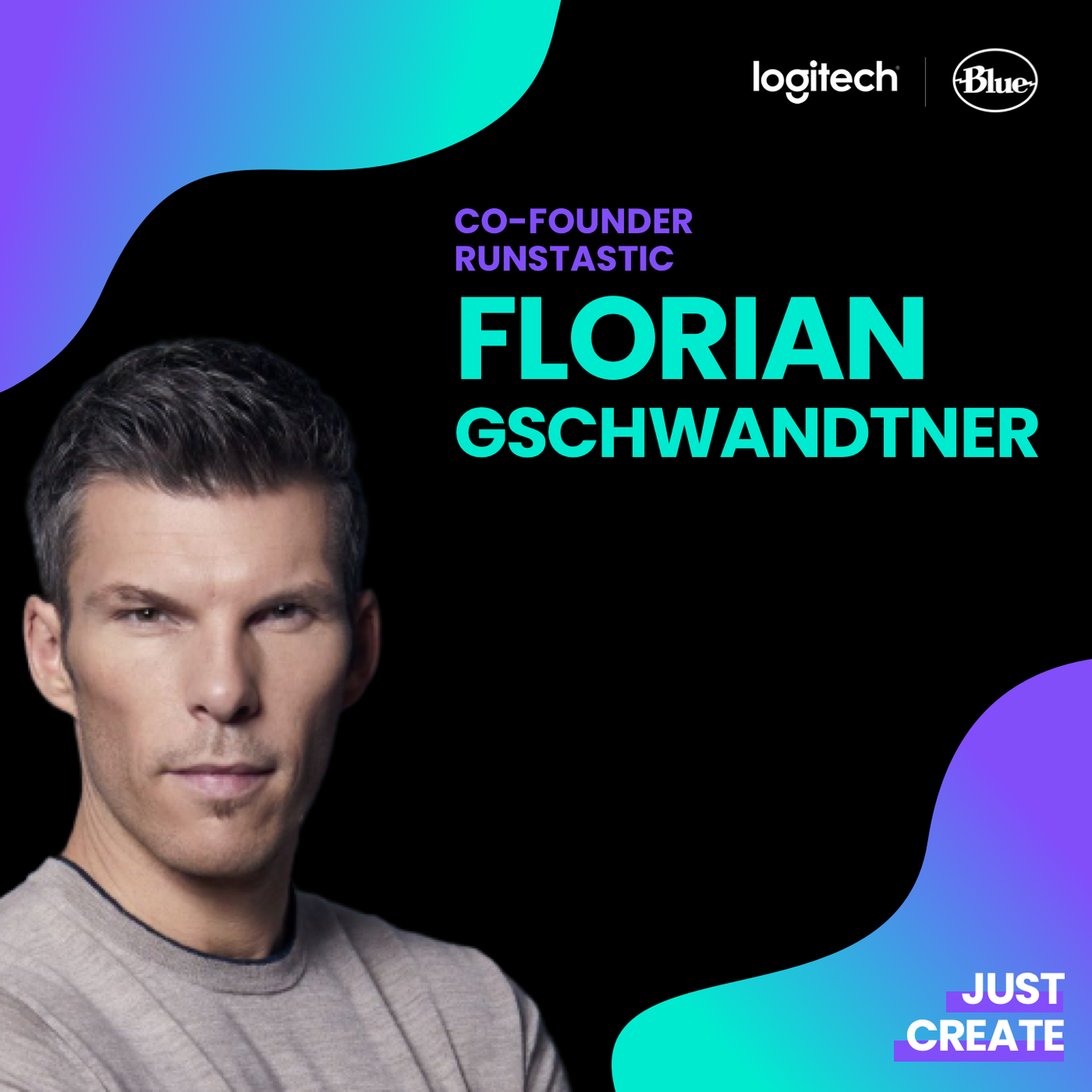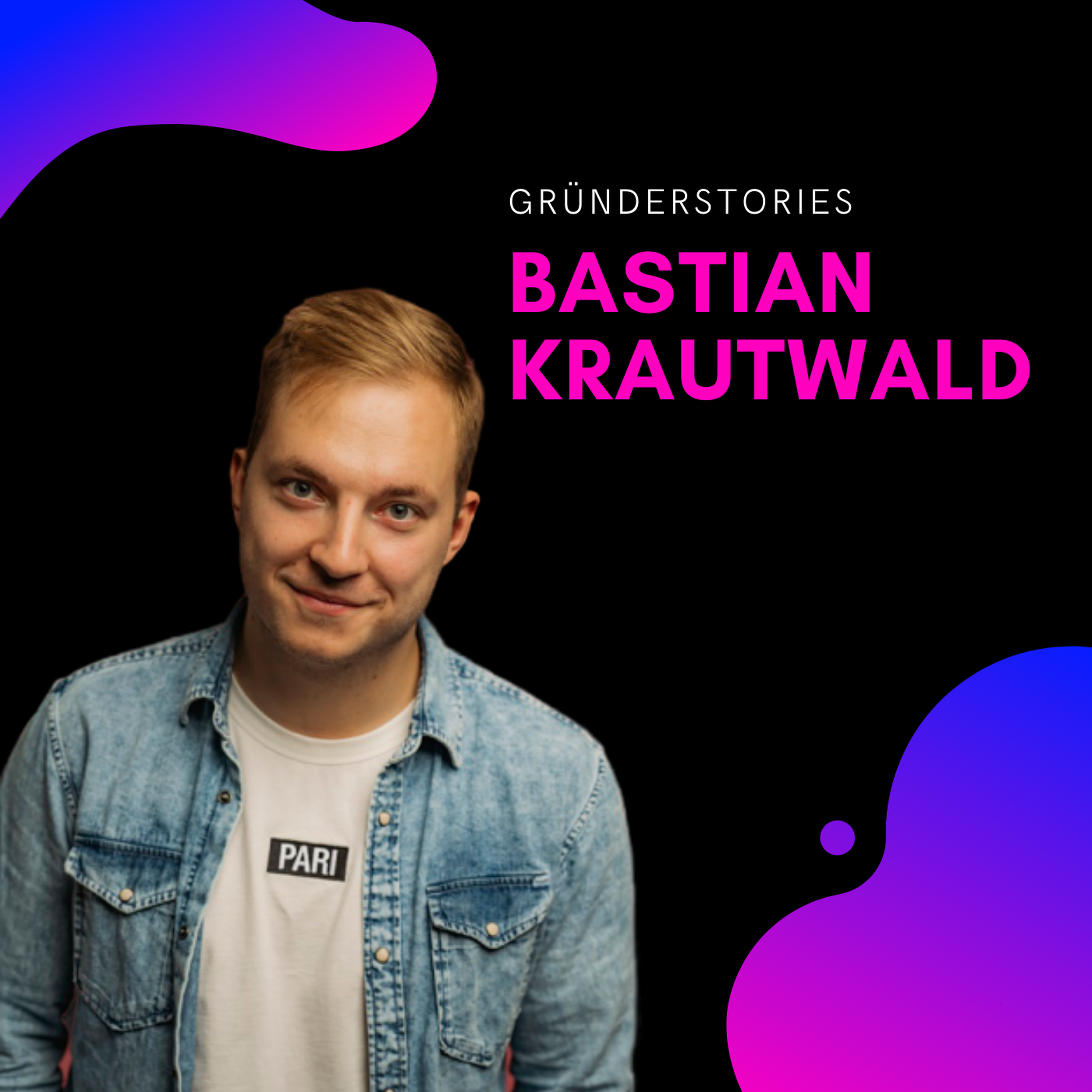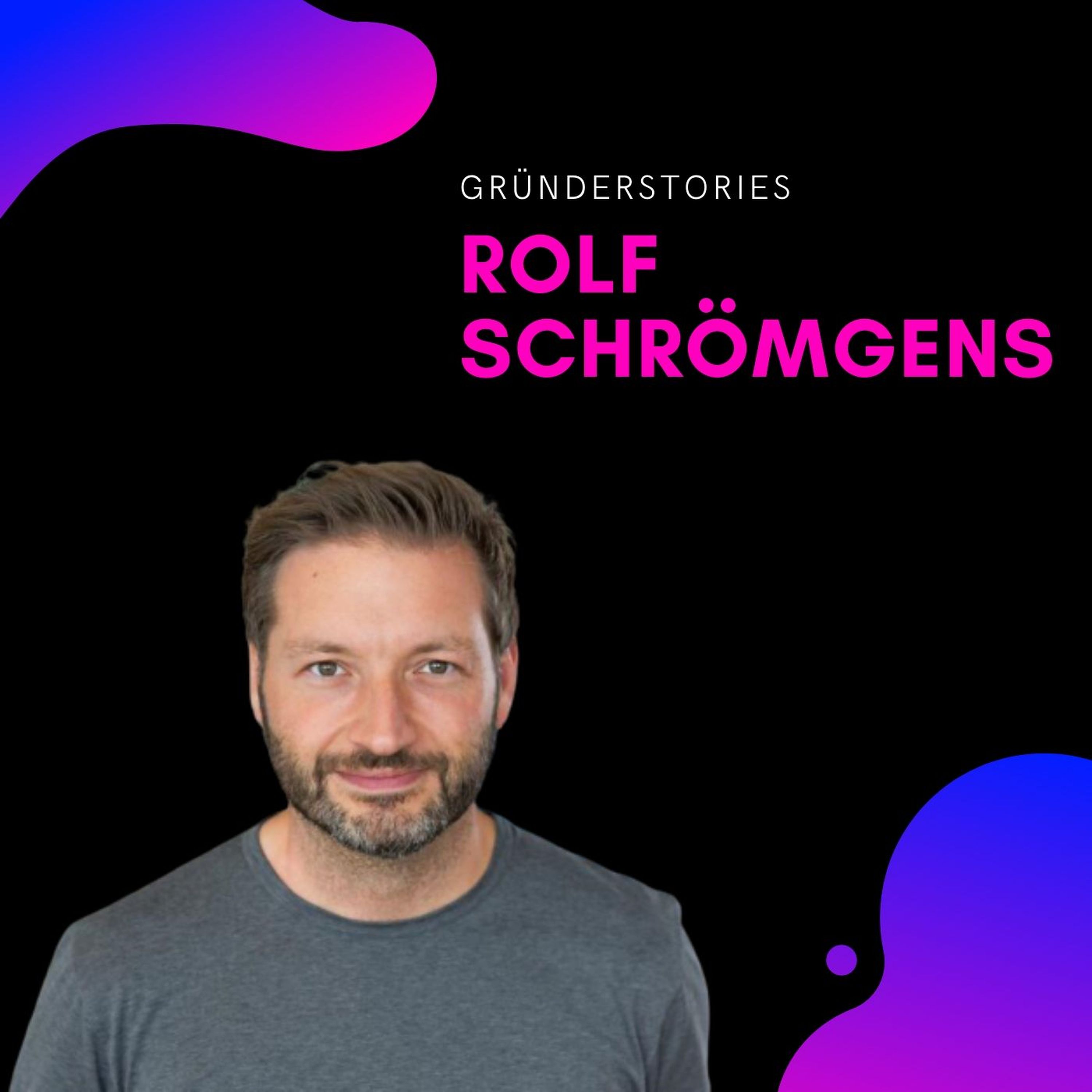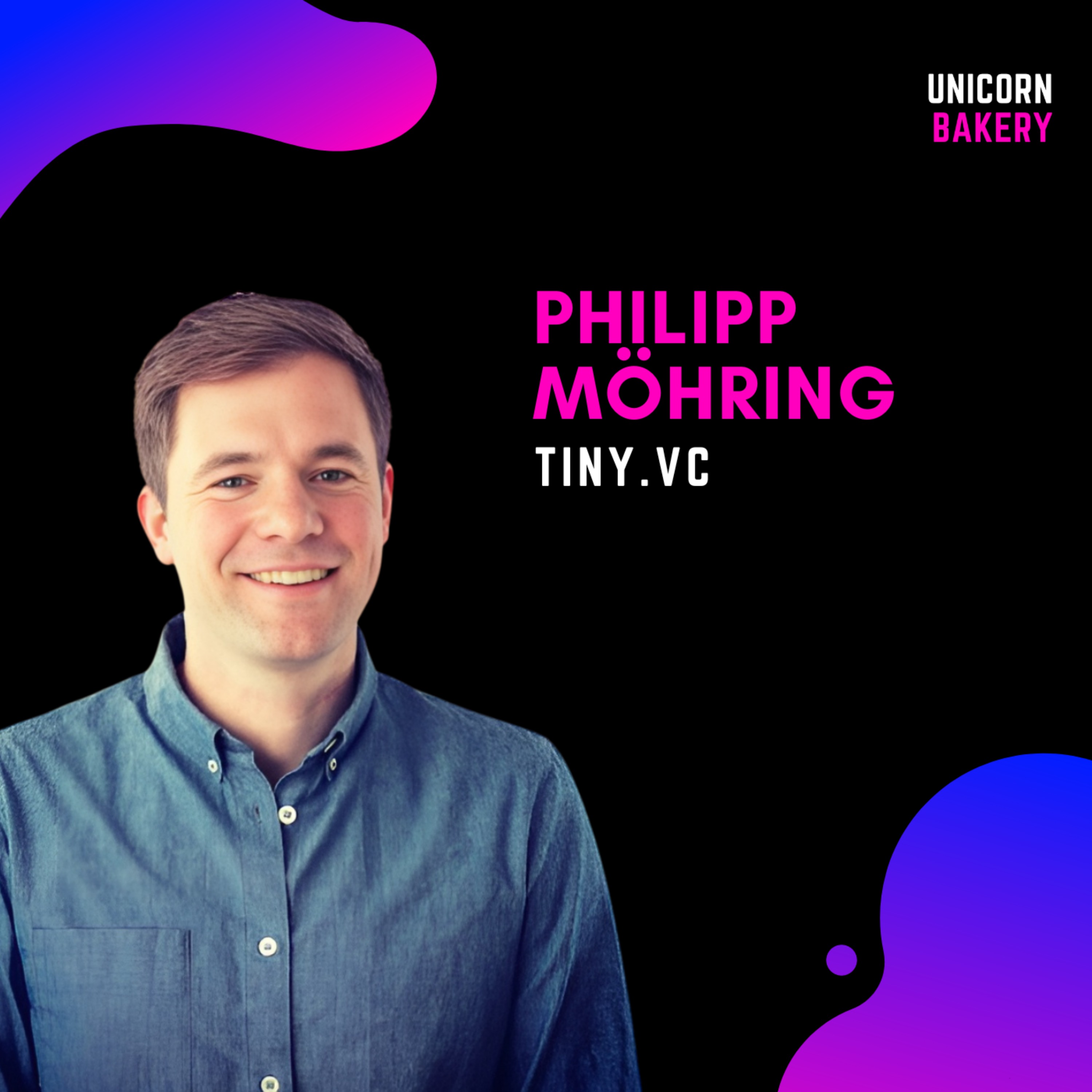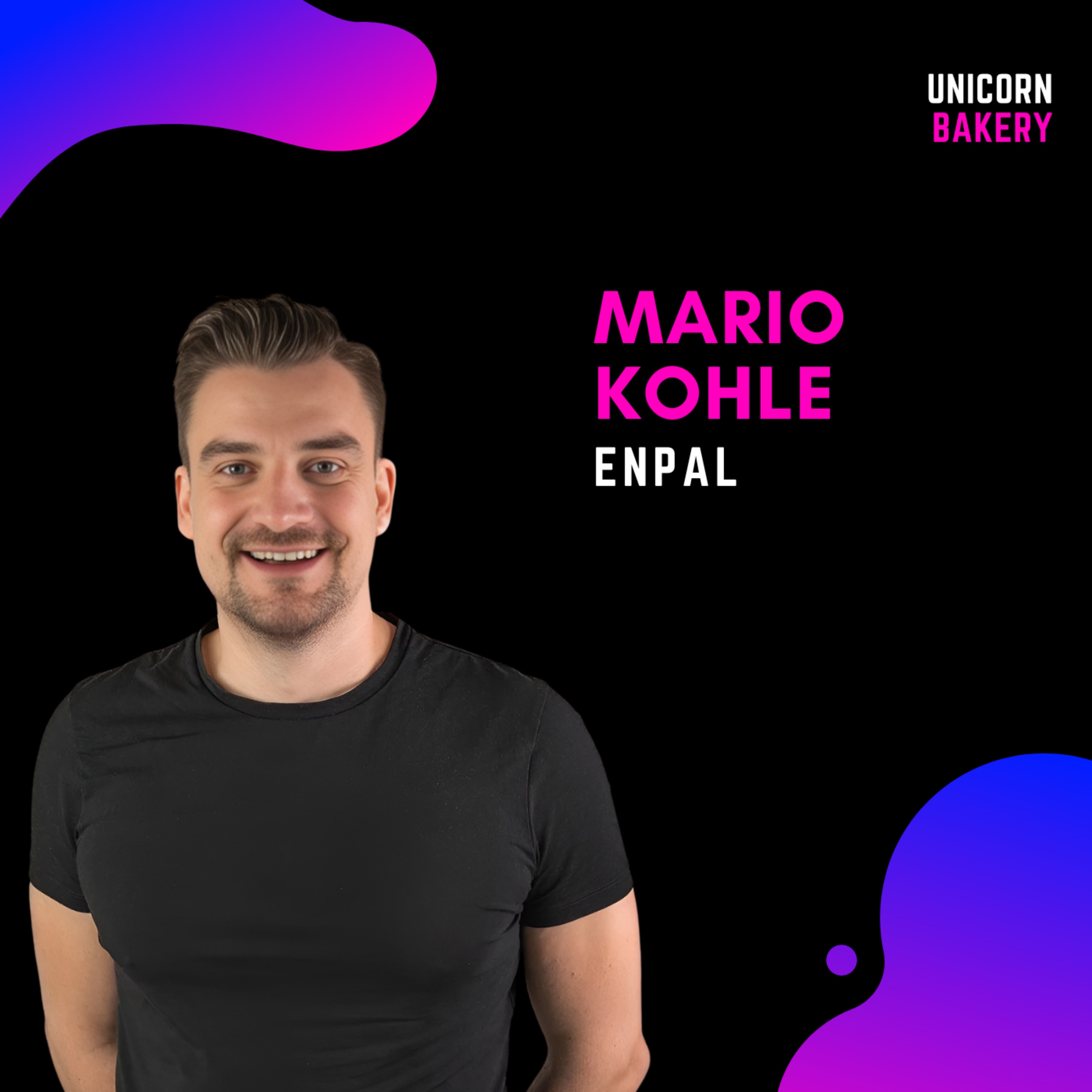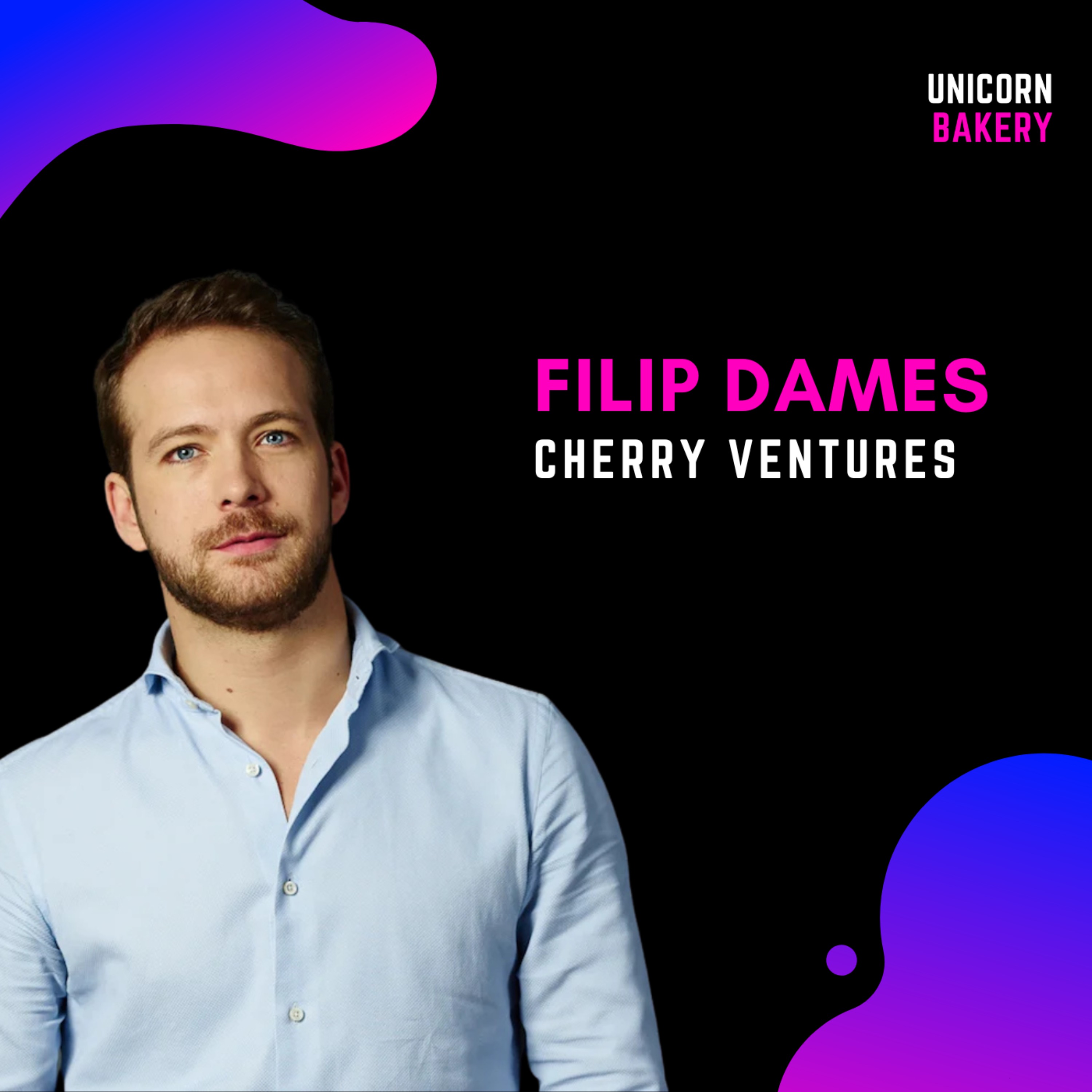How AI changes creativity forever, with Adobe’s Chief Strategy Officer Scott Belsky
Welche Rolle spielt Kreativität für Unternehmer?
Und wie verändert sich das Verständnis von Kreativität durch Künstliche Intelligenz?
Scott Belsky gründete Behance, verkaufte das Startup an Adobe und ist dort nun Chief Product und Chief Strategy Officer.
Adobe ist eine der 50 wertvollsten Firmen global.
Bei Adobe betreut Scott alle neuen Produkte und beschäftigt sich eingehend mit der Frage, wie die Zukunft für Kreative aussieht.
In dieser Podcast Episode von Unicorn Bakery sprechen Scott Belsky und Fabian Tausch über den Einfluss von Künstlicher Intelligenz auf Unternehmertum, Kreativität und Produktentwicklung in Firmen.
Was du lernst:
- Welchen Einfluss hat KI auf die Arbeit in großen Konzernen wie Adobe?
- Wie verändern sich Produktteams aufgrund von KI?
- Wie hat Scott sich als Gründer gefühlt, nachdem er sein Unternehmen an Adobe verkauft hat?
- Was wollen Investoren wie Scott, wenn sie nach neuen Talenten suchen?
- Wann lohnt es sich, ein neues Produkt zu launchen und wann, das Bestehende weiterzuentwickeln?
ALLES ZU UNICORN BAKERY:
Scott Belsky
LinkedIn: https://www.linkedin.com/in/scottbelsky/
Adobe: https://www.adobe.com/
Unicorn Bakery Whatsapp Broadcast:
Hier erfährst du alles, was du als Gründer wissen musst: https://drp.li/jrq5S
Unser WhatsApp Broadcast hält dich mit Einblicken in die Szene, News und Top-Inhalten auf dem Laufenden.
Marker:
(00:00:00) How does creativity influence entrepreneurship?
(00:06:28) How does AI impact such large organizations like Adobe?
(00:10:21) How do you decide if you want to launch a new product vs. improve a "good old" one and what are your thoughts on a good launch?
(00:18:37) How did you feel after selling to Adobe?
(00:23:33) What are you looking for when you want to invest in a business?
Hosted on Acast. See acast.com/privacy for more information.
(00:00:00) Welcome to a new episode of the Unicorn Bakery. (00:00:02) My name is Fabian Tausch and today's guest is Scott Belsky. (00:00:06) Scott bootstrapped behind, sold to Adobe and is now the Chief Product and Strategy Officer at Adobe, while he has been the Chief Design Officer before. (00:00:14) Scott calls himself a product and design obsessive, wrote a book called The Messy Middle, and I would like to explore the impact of artificial intelligence on both product building and creativity for all of us for the future, because I think a few things are changing right now. (00:00:29) And yeah, without too many further details, Scott, it's an honor to have you on the show. (00:00:35) Welcome to the Unicorn Bakery. (00:00:36) Thanks for having me. (00:00:37) Cool. (00:00:38) Let's start with the first and super simple question of how important is creativity for being an entrepreneur? (00:00:44) Well, I think, you know, I define creativity as a genuine interest combined with initiative. (00:00:50) A genuine interest in something that you will just try to hold your eyes open at night to keep reading about, to keep thinking about, and the initiative to do something about it, to do something with it, to advance it, to challenge and question it. (00:01:03) And so I think creativity, you know, is required across every field to move it forward. (00:01:07) And I believe that entrepreneurship is ultimately about people, you know, who have a genuine interest and take initiative in something that's interesting to them. (00:01:14) So it's, I would say creativity is extraordinarily important. (00:01:17) And you know, it's also important to have some of these, you know, ideas that other people don't have, right? (00:01:22) I mean, creativity is oftentimes strange to others at first, because it's not familiar. (00:01:26) And so much of the world is just about a battle against familiarity, you know, everything that feels comfortable to you. (00:01:32) It's because it's familiar. (00:01:33) You know, every brand that you like at first is because it's familiar. (00:01:37) Any idea that makes sense at first is because it's familiar. (00:01:40) And yet the world has changed through things that are unfamiliar, you know, that the rest of us are socialized to understand and respect. (00:01:49) That's the role of the builder. (00:01:50) Do you think people have the feeling that they're creative? (00:01:53) Because when I came out of school, I thought I'm the least creative person on earth. (00:01:57) Well, I think that if people think about creative, from the standpoint of I'm a good drawer, you know, or I'm a good artist, then I imagine many people would say that they're not creative. (00:02:06) But I don't know, I have friends who probably don't define themselves as creative. (00:02:09) But when you start talking to them about something that they're genuinely interested in, and are passionate about, there's a spark that lights up in their eye, and you realize that you know, this person, you know, has an innate desire and ability to do something unique and different. (00:02:23) So I do believe that we're all creative, and are just kind of all on a journey to find the area of application, you know, for our creativity. (00:02:30) I mean, you're building products with Adobe for all the creatives out there and also to enable people to be more creative, even when they might not be the most creative minds ever, because I would not put myself in a bucket and still use the products to also make some leaps in some certain situations. (00:02:48) How do you think, and as you think about strategy and product a lot, how do you think the skill of creativity will change during the next years, maybe months, maybe changed throughout the last year because of the new technology that we have? (00:03:01) What is or will it be redefined? (00:03:03) Well, one of the interesting points about just ideas in general, is that there's always been so much friction to realize, you know, actualize an idea, and to into merchandise and distribute it. (00:03:16) And it's, you know, that friction is rapidly decreasing. (00:03:20) So for example, if you have your idea, an idea in your mind's eye for a product, or a variation of a product that exists out there, before you used to have to find a designer to work with, or a industrial designer to work with and a packaging expert to work with and hire an agency. (00:03:37) And even if you had these ideas in your mind's eye, there was just, you didn't have the skills to actualize them. (00:03:42) But now a lot of the learning curve associated with skills has been totally flattened with the use of tools like generative AI, where you can just describe what you see in your mind's eye, and get variations, you get get actual, you know, three dimensional images of what that might look like. (00:04:03) And so, you know, that's one of the reasons also why I feel like taste is actually more important than skill. (00:04:09) Over the coming years, it's the curatorial instinct, it's the director mindset, it's knowing what works and what doesn't, that will differentiate us more than spending 10 years mastering a tool, you know, and so I think that that's a big shift in the future of creativity is that taste will matter more than skill, and that people with ideas will have less friction to have something that they can ultimately share and get traction around. (00:04:35) You're a product nerd, if I may call you that way, you're an investor, you talked to so many founders, you build a product all the time at Adobe. (00:04:44) What do you think, how, and you're a founder, entrepreneur yourself, how do you think all of what we bespoke will impact the future of startups and the newest entrepreneurs and companies that will emerge from now on? (00:04:56) Well, I think if we fast forward several years, what are we going to see, I think we're going to see far more small and medium sized businesses that are doing all kinds of creative things and far larger market and because they're able to start to leverage some of the capabilities that were typically only reserved for large companies. (00:05:18) If you think about it, large companies have marketing departments and finance planning departments and legal departments and all these big groups of people that allow them to scale. What we're going to see in the future is that more of those previously people heavy departments will be for the SMB achievable through AI tools that either a few people can use or one person can use or can be completely automated. (00:05:43) And so you'll start seeing a lot of these small businesses start to kind of flex like bigger brands as a result of these tools. (00:05:51) And I think that's really exciting because it's empowering to the entrepreneur, to the person with the idea who would have previously had to work at a company to leverage the scale to do something miraculous and now is able to do that somewhat on their own. (00:06:05) I think we'll see the first company that is achieving over 100 million in revenue with one person, you know, if that doesn't already exist, maybe over a billion in revenue with five people. We're going to start seeing some real outlandish examples, modern businesses built by entrepreneurs who are creative and leveraged the latest AI tool set to scale. The good thing with having you on the show is that you are part of an organization that has thousands of employees is huge, huge, huge. (00:06:36) How does it impact such large organizations? (00:06:39) The change that we see at the moment? (00:06:40) Well, I think that large organizations are going to refactor how they work and they're going to repurpose people towards higher order tasks. (00:06:47) So imagine instead of having 100 people focused on three products, you can have 100 people focused on five products and or maybe you can hire another 50 people and cover 12 products, you know, and so you're going to start getting more return on on the individual. I call it ingenuity per person. (00:07:09) If you have more ingenuity per person because so much of the old mundane, repetitive labor that they used to have to do every day is now done by AI or augmented by AI. (00:07:20) You're going to get more potential from each person that you have. (00:07:23) And so I'm excited to refactor an organization to have people do more uniquely human things, whether it's coming up with ideas, testing things, optimizing in unique ways, or just being more customer facing. (00:07:36) You know, we went through a period over decades where people labor was so expensive that we started to everyone, every company started to try to automate or outsource or in or automate, just use robots and bots to do everything. (00:07:51) I wouldn't be surprised if we see a shift where suddenly we want more human to human contact with our customers. (00:07:57) We want more salespeople on the floor, because those are the things that really distinguish a relationship with the brand. (00:08:03) And we automate other parts of the organization. (00:08:06) So I just think we're going to see a shift. (00:08:08) And I'm just fascinated to see that start to play out as we refactor how we work. (00:08:12) You lead product, you have to think about that, as you said, at the moment, do you think the structure of product teams changes drastically? (00:08:19) Or will it just be that people can be more productive? (00:08:22) And therefore, for example, the same amount of people can work on more products or more in depth, different tasks? (00:08:28) Yeah, I mean, listen, I'm a real optimist on this. (00:08:30) But I have also considered the history, you know, of what happens when a discipline becomes exponentially more productive. (00:08:39) I mean, look at engineers, the way engineers work 20 years ago versus the way engineers work today. Engineers have gotten more and more and more productive, like perhaps a step function more productive. (00:08:50) And yet everyone keeps hiring more engineers. (00:08:53) Why? If they could achieve what they achieved 20 years ago, you know, with half or a quarter or a fraction of the of the people. (00:09:00) And the reason is because they want to do more. (00:09:02) But there's a unique human desire to always make things better, to reach more people, to do more products, to grow the business faster, to be in more regions. (00:09:11) And unless you're a penny pinching private equity firm, you ultimately want to have more people to be able to accomplish more. (00:09:18) And so I think that's what we're going to see is we're going to see companies become more ambitious. Now, what also happens if you give an individual the superpower of more cycles to explore the possibilities to solve a problem, you're going to find better solutions. (00:09:33) When you talk to a creative professional and you ask them how they come up with a great brand identity for a client, it's usually just a function of time. (00:09:41) You know, how many possibilities can they possibly explore to find the very best one to propose to their customer? (00:09:48) Well, if you give them 10x more cycles through the power of AI to explore all these additional variations of color palettes and of fonts and whatever else, like they will actually find even a better solution to make the brand outperform. (00:10:03) So we're going to see that happen. (00:10:04) And as a result of that, the game is going to game is going to get to a higher level. (00:10:08) And, you know, much like we see tennis players on the court today playing so much better than they did decades ago because the equipment got better and the training got better. (00:10:17) And, you know, the same thing is going to happen in the world of creativity. (00:10:21) Let's have a little look into the Adobe product team, product line. (00:10:25) You launched Firefly recently, or it's not even recently anymore. (00:10:29) It feels like a long time ago, even due to all the changes that happened. (00:10:34) So how do you currently think about launching products? (00:10:38) Because you're a large organization, there are products that are out there for so many years, people are using them, and sometimes you adapt stuff and improve the product. (00:10:50) Sometimes you launch new things. (00:10:52) How do you decide on what's the right move? (00:10:55) Is it a new product? (00:10:57) Is it improving the quality of existing products? (00:11:00) First of all, when you launch a new product, it's a huge commitment and you have to be all in and you have to commit to iterate it endlessly. (00:11:08) I try to focus our team's energy on the products that matter most. (00:11:12) And I also try to kill products that distract us, because if you're optimizing for SEO, if you're optimizing for marketing dollars and the return on attention that you're trying to get around something, you want to have fewer things in market. (00:11:25) When you do launch something, you need to really, really have a ton of empathy with exactly what problems you're solving in the initial part of the customer experience and also what sorts of retentive capabilities, magic possibilities you're offering to the customer that keeps them over time. (00:11:41) I think that's why we see all these flash-in-the-pan creative apps that are out in the marketplace that everyone gets so excited about, like a selfie app or all these random products that pop in the app store. (00:11:53) They might even go to the top of the app store, but then six months later, they're just gone. How do you build a really enduring product over time, like a Photoshop, like an Illustrator? New products that we've come out with, we've come out with 3D and immersive products that really transform the way that people market and build marketing collateral and also design new products for the marketplace. (00:12:18) Adobe Express is a great example of a product that we've come out with and just doubled down on and continued to hone and build generative AI features into, etc. (00:12:27) Firefly is a great example of getting something out in beta, really seeing how people use it, and then just adding more and more capabilities to just add more and more value to the experience. So it's been a balance of refining and optimizing and honing the line and also finding new market needs, market opportunities. (00:12:47) I, by the way, love the audio enhancing product that came out. (00:12:50) Yeah, Podcast. (00:12:52) You use it? (00:12:52) Yeah, of course. We use it a lot and still use it. (00:12:56) Sometimes it helps recovering some great audio that was really messed up or anything like that. So I really like it. (00:13:02) But different question, because so you're an entrepreneur. (00:13:05) You built Behance. (00:13:06) I heard you saying that you built a lot of features into the first product before you launched it. Then you launched it. (00:13:12) You teared away a lot of features again to then figure out what the actual use case might be. And you invest in a lot of startups as well. (00:13:21) You invested in Uber, Pinterest and others. (00:13:23) And you know that a lot of founders are looking forward to the launch, to the launch that they are doing. And throughout the years, you have experienced launches from so many founders, your own with Adobe. (00:13:37) What are your thoughts on the importance of the launch by now? (00:13:40) Well, I have a few maybe contrarian views that are worth sharing. (00:13:44) Number one is I think that people underestimate how much gravity your first version of the product is in market and how much it has. (00:13:52) Because naturally, every team starts thinking incrementally as soon as they get something out in market because they start seeing the data. (00:13:58) They start seeing what customers like and don't like, and they start making little changes on the edges. And they feel like any drastic change to a product post launch is almost unacceptable, you know, unless you absolutely have to pivot or something like that. (00:14:11) And so the gravity of that first version of the product is so great that it merits really making sure that you have the core parts to differentiate you the most perfectly polished. (00:14:22) Now, that goes against the idea of the MVP, you know, where you put the minimum viable product out there. The problem with doing so is that the things that distinguish you the most are not typically done well. (00:14:34) And also whatever you put out there quickly tends to take so much gravity for the team that can't escape it. (00:14:40) And you start feeling a little paralyzed with whatever you put out so haphazardly because you thought you had to ship an MVP. (00:14:47) So I always say, never rush your competitive advantage. (00:14:52) The things that distinguish you the most in market make them perfect. (00:14:56) Don't push something in the market that you do not believe is ready for many, many cycles of iteration. If you're still not sure if this is the right product or not, test it with a few design partners, test it with 100 people that you know, and don't announce it publicly. Really don't announce something until you know it works. (00:15:14) It's not rocket science. (00:15:15) The second thing that I would say is that when you do launch, you're leveraging your network, the available reach that you have naturally as a person that you've grown throughout your career in that one moment to engage with your product. (00:15:30) And those customers will come in. (00:15:33) And even though they're your friends, they're still lazy, vain and selfish in their 30 seconds of using a product that's new to them. (00:15:39) And they're going to quickly determine whether this product is right and useful to them or not. And that lasting impression will last a very long time. (00:15:48) And so the analogy I give founders is if you go to a restaurant and you have a horrible meal or you actually just don't like it, it's not great, but it's it's not bad. (00:15:57) It's just average. It's really hard to get you to go back to that restaurant. (00:16:01) In fact, you might not go back ever again or maybe just years later, only when someone tells you that the menu has changed or the chef has changed. (00:16:09) Like you've basically burned the bridge between the customer and the restaurant. (00:16:14) Products are no different. (00:16:15) If you ship something and then you blast your network with information and they come in and they decide quickly that it's not right for them, they will not try it again ever or for years. Right. (00:16:28) It's really, really hard. (00:16:29) And I think we've made that mistake before at Adobe, shipping something to power users that was too early. (00:16:37) Right. As a beta. (00:16:38) But then those power users quickly jumped in and they're like, oh, it doesn't have this. (00:16:42) It doesn't have that. Can't use it for professional purposes. (00:16:45) And then we burn the bridge. (00:16:46) And then when we're really ready to ship it, when it's an amazing product, those people are like, I already tried that. (00:16:52) You know, it wasn't it wasn't right for me. (00:16:53) And they never you know, they never came back to the restaurant. (00:16:56) So it's really important to get that right as well. (00:16:58) I think a lot of us know the TikTok moment when we first downloaded TikTok and then it felt like only young kids on there. (00:17:04) And you're like, ah, yeah, I can delete it. (00:17:06) And then two years later, you download it again and you're like, holy, that's not how I expected it to be changed. (00:17:11) The content is way different. (00:17:12) And then you fall into the algorithm and you're like, OK, now I'm probably spending too much time on there. So it happens often. (00:17:20) But we always underestimate when we launch something ourselves that we think, OK, it could be good enough. It's it's interesting to I asked the question because I recently chatted with Rahul Vara from Superhuman and he said he doesn't believe in the traditional launch. And it's something that you don't hear that often. (00:17:36) Sometimes people are like, yeah, we have to launch, we have to make it big. (00:17:40) And as you might know, with with Superhuman, they just were, let's say, in an invite only mode for so long. (00:17:47) And that's also what you use quite often with the better beta products or alpha products of Adobe that you have to sign up for a waiting list. (00:17:55) And then at some point you get the ability to use it instead of just blasting it out that everybody can use it. (00:18:00) Yeah, I think that you have to. (00:18:02) And Superhuman is a great example. (00:18:04) Rahul, he basically onboarded manually hundreds, if not thousands of people. (00:18:09) Right. And he just kept making it better and better and better. (00:18:12) And, you know, I remember I was asking him because I'm an investor in his company, when are you going to just go live for everyone? (00:18:19) And he was like, well, we're just working our way through this endless waitlist and we're going to keep making it better and better and better. (00:18:24) And he just wasn't sure to his point. (00:18:27) It wasn't important to him when that moment came. (00:18:30) It was more so just every customer getting, you know, more and more valuable for him based on their engagement. (00:18:37) I have another question a bit more personal to you. (00:18:40) You sold your company to Adobe and you did the integration. (00:18:44) You stayed there. (00:18:45) I think there was a year and a half in between at some point. (00:18:49) But did you after you sold the company, you've been part of Adobe. (00:18:54) Did you feel less entrepreneurial from times to times? (00:18:57) I'm asking because your book of the messy middle is sometimes about the highs and the lows and the parts in between. (00:19:04) And I just from the outside, I would just assume if I talk when I talk to a lot of founders that after they sold their company, it's like this state in between. (00:19:13) And most of them then leave their acquirers. (00:19:15) And I want to understand why you didn't. (00:19:17) That's something we can we can talk about in a second. (00:19:19) But I can imagine that the first phase could be a messy middle. (00:19:24) Well, it's definitely hard when you sell something that you've been thinking about every waking moment for, in my case, seven years. (00:19:32) It's almost like an identity crisis because it was who you were, you know, professionally. (00:19:37) It was all you talked about. (00:19:38) It was all that defined you to some degree, you know, and and suddenly it's, you know, it belongs to someone else. (00:19:46) And and I it was a struggle. (00:19:48) I stayed for three years after that and had to go through this process where I was basically parting ways with this baby of mine. (00:19:55) And it kind of all grown up and gone to college and now could think for its own. (00:19:58) And sometimes the answer is going to do things that I was I wouldn't want it to do anymore. (00:20:02) And I had to become OK with that. (00:20:04) And I think it actually was healthy for me for that three years to leave Adobe, to your point, only for a year and a half just to part ways and experience life, having no relationship with this 10 year journey I had had at that point with BNs after that three years at Adobe. So when I came back, I came back less so because it had nothing to do with Behance. Of course, it was that I felt like there was something that needed to happen. You know, I looked at Adobe and I was frustrated. (00:20:30) There were no cloud documents for Photoshop. (00:20:32) There was no Photoshop web or Illustrator web. (00:20:34) There were no collaboration features. (00:20:36) There was no three dimension 3D product. (00:20:39) There were no of these future kind of opportunities on web. (00:20:42) And none of this existed. (00:20:44) And I just felt like I felt like I was the right person, you know, to come back and to cause some ruckus and be part of the journey to bring this product set to the modern world. And it was an exhilarating ride. (00:20:59) You know, since coming back now six years ago, we have Photoshop and Illustrator on the web now, you know, the cloud documents that are behind those products. (00:21:07) You know, there were years of issues and platform decisions and re-architectures and sort of all kinds of really messy middles, as you said, in the process of doing so. (00:21:19) But the entrepreneurial instinct, building something from zero to one, you know, it's such a crazy, chaotic experience to do that. (00:21:28) So much self-doubt, so many fights and periods of uncertainty and ambiguity and anxiety and actually doing a bold journey in a company, overcoming the immune system of the business that tries to kill off new ideas, you know, getting things done under the radar that people don't value yet, but you know, will be important years from now, like new platforms that power new products, you know, efforts to bring things to the cloud where there's no clear business return anytime soon, but you just know it has to happen. (00:21:58) There's actually very, it's very similar, you know, in some ways. (00:22:02) And it's funny, like I just enjoy being the entrepreneur within for that experience. (00:22:07) When you describe this journey, it sounds a bit like, OK, I had one and a half years off, then I called the people in charge and I'm like, here I am, I'm coming back, but this time in a different role. (00:22:18) Sounds a bit too easy. (00:22:19) Yeah, of course. (00:22:19) You know, it's never like that. (00:22:21) But I, you know, I had a dinner with our CEO when I was no longer at Adobe, when he was visiting New York and I didn't work for the company anymore. (00:22:29) So I was very honest about exactly what I felt was wrong, as well as like the opportunities I was super excited about. (00:22:35) And fortunately, he kind of called my bluff, you know, and was like, well, why don't you come back and fix it? (00:22:40) And I just at first, I didn't even think that was an option or something I wanted to do. But he, you know, he is a great leader. (00:22:48) He really has always empowered his team. (00:22:50) And he also is willing to reorganize the entire company, you know, to let people do their greatest work. (00:22:57) And I've learned a lot from him, you know, in that regard. (00:23:00) You know, usually you think that the design of an organization is very fixed and these organizations within a company have to stay as they are. (00:23:09) What I've learned from Shantanu is that that's not true at all. (00:23:12) I mean, you should organize around people to some degree, which is sort of the opposite of what they teach you in business school. (00:23:18) Like don't organize around people, organize around functions. (00:23:20) But sometimes you do have to organize around people because you know what? (00:23:23) It all is all about people anyways. (00:23:25) Like if you're going to do something bold and amazing in a company, it's not because of an organizational design decision. (00:23:31) It's because of a people decision. (00:23:33) Would you say that more founders could or should go into existing larger companies to help them restructure or because you could have built something new as well? (00:23:47) It sounds easier than it is, of course, but it's at least as hard to go into a large corporation, even when you know it like Adobe in a different role, different responsibilities and then try to be the entrepreneur within. (00:23:59) And I would say a turnaround is a bit too, maybe a bit too harsh. (00:24:04) It's not that the company wasn't successful before, so don't get that wrong, but it's a bit different. And then just building from zero to one again, would you or would you recommend founders to explore this option as well? (00:24:16) Well, I think it really, as always, depends on the relationships between the founder and the team and the company. (00:24:22) You know, if you're set up to fail, then you shouldn't, right? (00:24:26) And if you're if you're coming into an organization where you don't have the influence to really move the needle, then you're going to waste your time. (00:24:33) However, if you come into an organization that has an established reach, like a go to market advantage and tremendous resources, sometimes you can actually make your idea or what you're passionate about happen far more effectively than if you were to just set out and do it on your own with this uphill battle to start from nothing. (00:24:52) So it's always situational dependent. (00:24:54) What I would say to founders is don't start companies for the sake of starting companies. Anytime I've ever met someone who started a company because they just said they wanted to be an entrepreneur and they just wanted to start something and work for themselves never works in my experience, at least because you actually are working for people, right? In fact, you're working for every employee and every investor and every company, every customer, and you're truly at all of their mercy. (00:25:19) And if you think you're working for yourself because you're an entrepreneur, you're missing the point. (00:25:24) Whereas if you are, you know, same if you're in a big company, like it can be great or it can not be great. It's based on the setup and based on your alignment with the mission. So these generalizations like don't work in big companies or entrepreneurship can't happen in big companies. (00:25:38) It's all situational. (00:25:39) And, you know, your podcast is called Unicorn Bakery. (00:25:42) You know, one of the true unicorn situations for me is acquisitions that actually change a company because of the people. (00:25:51) You know, most acquisitions, the people just all go and leave. (00:25:55) They leave the acquirer and they, you know, as soon as they can. (00:25:59) Behance, you know, I'm proud to say my team, a lot of us are still here. (00:26:03) You know, the lead designer of Behance that I worked with more than 10 years ago, 12, 15 years ago, he's still running Behance design and product. (00:26:12) We have a number of people that are still at the company. (00:26:15) And, you know, to me, that's actually a real unicorn story in the sense that that rarely happens. And that's because of culture and alignment of mission and, you know, and performance, like people feeling like they're doing great work. (00:26:26) I wanted to ask what Adobe did differently so that all the people stayed, but you answered it yourself in the first glimpses. (00:26:34) But one thing that I want to come back to that you mentioned is that people should not start companies for the sake of starting companies. (00:26:41) You invested in some of the most successful startups of the last, let's say, 15 to 20 years. And therefore, you're talking to a lot of entrepreneurs, you are a founder yourself. What are you looking for in other founders that you then invest in? (00:26:57) Because I can imagine it's not just, hey, my friend is building a company and I'm investing by now. I guess there is a bit more to it. (00:27:03) So what are you looking for? (00:27:04) Well, I think the founders that I enjoy working with the most and the ones that I therefore try to back are ones who really long to change something. (00:27:13) They are really great students and listeners. (00:27:16) They deeply seek and value feedback, which is rare, by the way, because most founders are so hard pressed that they don't want to hear the naysayers. (00:27:26) They don't want the feedback. (00:27:27) You know, if you don't if you don't understand something, it's your fault. (00:27:31) Right. Whereas the ones that I love to work with are so interested in everything that could be better and everything that could be different. (00:27:38) You know, take Josh, the founder of the browser company that makes the Arc browser. (00:27:43) You know, he personally responds to every piece of feedback that I send. (00:27:49) It always loops in the right people. (00:27:51) And within an hour, like everyone's troubleshooting and debugging it or asking about, you know, what kind of feature could address my concern. (00:27:58) They're so insatiably interested in what me as a customer, you know, and also a product person has to say and what they're what I'm thinking. (00:28:06) And even though they become more successful, they're still like that. (00:28:09) And that's why I in my gut, I just know I feel like they're going to be successful, even though it's not clearly a success yet. (00:28:16) It's still a startup. (00:28:17) Right. Those are the folks that I love working with and they live and breathe what they're doing. And they they're always interested in how to make it how to make it better. And they're also builders of teams. (00:28:27) They also are great at narrative and storytelling. (00:28:31) They also value design and product sensibility. (00:28:34) Those are the things I look for. (00:28:35) ARK definitely is something worth checking out if you haven't. (00:28:38) So I will put the link in the show notes as well. (00:28:41) Cool. I think we have a lot of things covered here and a lot of topics discussed. (00:28:46) I would love to have last words towards founders and entrepreneurs that you're like, OK, I wish somebody would have told me earlier. (00:28:54) So and from all your experience, if earlier stage founders see series A are coming to you, what is some general advice that you can give them? (00:29:03) Number one is is never try to obfuscate the truth. (00:29:07) I think that a lot of founders feel like they need to be promoters of their business, of the progress they're making and of this market opportunity. (00:29:17) And one thing I've learned as an investor and also working with some great investors over the years is that really great investors avoid promoters. (00:29:25) And the reason is, is because if you're making things look better than they are now, you're going to do that later to your employees. (00:29:32) You're going to do that to your customers. (00:29:34) You're going to do that to your future investors. (00:29:36) And you're not going to bask in the truth. (00:29:39) And as a result, you're going to fail to get the insights and the help you need. (00:29:44) You're not going to make the difficult decisions as quickly as you need to. (00:29:48) I'm very wary when people say this is going to be the best this or we have the huge this or this is like on fire or we're growing like blah, blah, blah, blah. (00:29:57) It's just, you know, stop, like focus. (00:29:59) Tell me what's really happening. (00:30:01) What's really keeping you up at night. (00:30:03) I love working with founders that are very pragmatic about the progress they're making. (00:30:08) They're optimistic about the future and the potential, but they're very pragmatic and honest about here's what's working. (00:30:14) Here's what's not working. (00:30:15) I'm still trying to figure this out. (00:30:16) And if I say, Oh, it's amazing that you've built that database of X. (00:30:20) And they're like, actually, that's not amazing. (00:30:22) Like that's readily available, but we're trying to do with it. (00:30:25) Like when I'm corrected, you know, that feels so good. (00:30:27) I'm like, okay, this person is real. (00:30:29) And when things get tough, like they're going to be completely honest with themselves and their teams. (00:30:34) And that might be all the difference between being successful and failing. (00:30:39) So be pragmatic, be real. (00:30:43) And if an investor does not resonate with what your business really is going through, they're not going to be a good investor and you're not going to be a successful company. (00:30:51) I would say that's the first. (00:30:52) I think the second thing is, and this is a compliment to what I just said, it may sound like the opposite, but be a good storyteller. (00:30:59) And you can both be pragmatic about the present, but also talk about what the future might look like. (00:31:05) I mean, you should always be articulating what you believe the future can and should be and how you're going to make it. (00:31:11) So I think that's also important for your, your team. (00:31:15) You know, I, I use the analogy of building a company. (00:31:18) It's like driving a car, you know, all across Europe with the windows blacked out in the back seats and your whole team is back there and they have no idea if they're making any progress or not on this endless journey. (00:31:30) And if you don't narrate the story for them, if you don't tell them the progress that they're making, they'll go crazy. (00:31:37) They'll want to get out of the car, but if you can keep telling them the story of why we're doing this and where we are, and we just made this progress and we just made that progress, you know, that story is enough to keep your team engaged long enough to figure it out. (00:31:52) And so you have to be a great storyteller. (00:31:55) You also have to tell the truth, but you'd have to be a great storyteller to keep your team engaged long enough. (00:32:00) I think that's one of the competitive advantages in entrepreneurship is keeping a team together long enough to figure it out. (00:32:06) Scott, it's been such a pleasure. (00:32:08) I will link to your LinkedIn profile, to implications, your newsletter, and also to the messy middle, um, your book or everybody who wants to learn more and follow you further. (00:32:18) Thank you so much. (00:32:18) It's been such an honor. (00:32:20) Thank you, Fabian. (00:32:20) I appreciate you having me and it's good to, uh, it's good to have the conversation.












